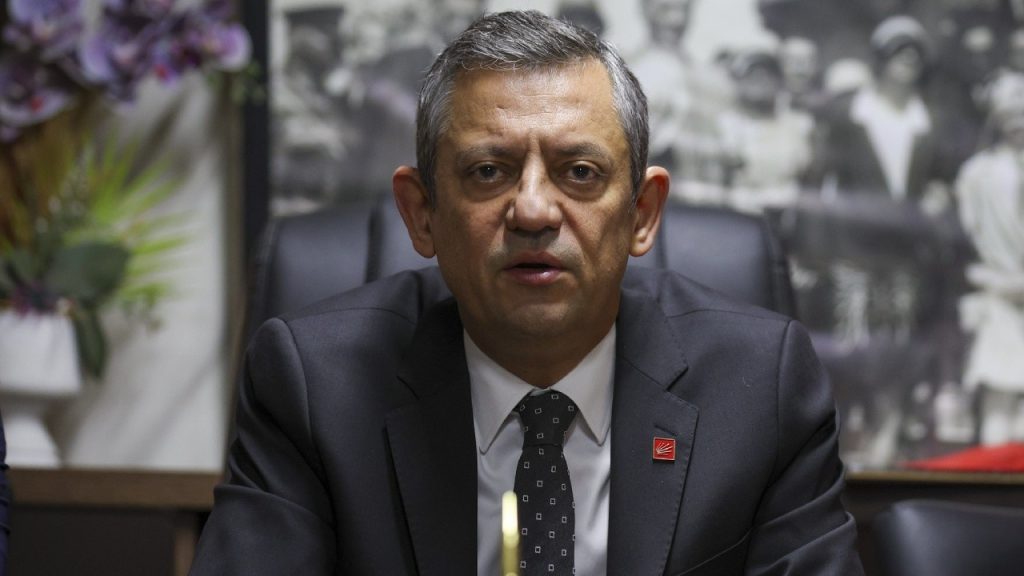The political climate in Turkey has intensified following the Interior Ministry’s decision to appoint a trustee to replace co-Mayor Abdullah Zeydan of the pro-Kurdish Peoples’ Equality and Democracy (DEM) Party. This move came after Zeydan was sentenced to three years and nine months in prison on charges related to aiding and making propaganda for a terrorist organization. The opposition leader of the Republican People’s Party (CHP), Özgür Özel, criticized the government’s actions, arguing that this decision undermines the will of the local electorate and highlights a troubling trend of dismissing elected officials.
| Article Subheadings |
|---|
| 1) Details of the Ousting and Appointment |
| 2) Opposition’s Response and Criticism |
| 3) Historical Context of Political Dismissals |
| 4) Public Reaction and Protests |
| 5) Broader Implications for Turkish Democracy |
Details of the Ousting and Appointment
On February 15, 2025, the Turkish Interior Ministry took significant action by appointing a trustee mayor to replace Abdullah Zeydan, following his sentencing by a local court. Zeydan was convicted on charges of “aiding a terrorist organization” and “making propaganda for a terrorist organization through media,” a decision which many observers believe reflects the broader struggle against perceived threats to national security. The actions of the Interior Ministry have drawn attention as they continue to remove elected officials under controversial circumstances. The fact that this dismissed mayor was a member of the pro-Kurdish DEM Party adds an additional layer to an already strained political context in Turkey, particularly between the ruling party and pro-Kurdish groups.
Opposition’s Response and Criticism
The dismissal of Zeydan has not gone unnoticed by the opposition, particularly the leader of CHP, Özgür Özel, who voiced strong criticism against the government’s actions. In a social media statement, Özel pointed out the alarming pattern of dismissals, revealing that 11 mayors had been ousted in 11 months since the local elections of March 2024. He emphasized that this pattern of behavior represents a violation of the people’s democratic will, underlining the significant disconnect between the government and citizens. Özel warned that the ruling party’s actions undermine the foundations of democracy and suggested that those not in power are increasingly marginalized, leading to a political landscape fraught with tension.
Historical Context of Political Dismissals
The situation surrounding the dismissal of co-Mayor Zeydan cannot be analyzed without understanding Turkey’s complex political history. Özgür Özel drew historical parallels between the current regime and previous military coup leaders, notably referencing Kenan Evren, who led a coup in 1980 that resulted in the ousting of then-elected officials. This historical context enriches the contemporary narrative, as critics implore that President Tayyip Erdoğan‘s government is emulating oppressive traditions by removing mayors and weakening local governance. Such comparisons evoke concern about whether Turkey is experiencing a regression into undemocratic practices reminiscent of its military past, where the government’s authority is exercised over local democracy.
Public Reaction and Protests
In direct response to the appointment of the trustee for the municipality following Zeydan‘s removal, public outrage erupted in the eastern province of Van. Thousands took to the streets protesting the government’s decision, demonstrating their discontent and calling for the reinstatement of their elected officials. During these protests, police detained 127 individuals, illustrating both the fervor of the demonstrators and the government’s swift crackdown on dissent. Protesters from the DEM Party and local citizens expressed their disapproval through chants and placards, making it clear that they view the removal of their elected leader as an affront to their democratic rights. This public unrest raises important questions about the limits of free expression and assembly in contemporary Turkey.
Broader Implications for Turkish Democracy
The dismissal of Abdullah Zeydan highlights critical concerns regarding the state of democracy in Turkey. As the government continues to exercise executive power in ways that appear increasingly authoritarian, many citizens and political analysts worry about the erosion of democratic institutions and local governance structures. The cycle of appointing trustees to replace elected officials, particularly those affiliated with the opposition, not only undermines the electoral process but also reinforces the power imbalance between the ruling party and opposition factions. In many ways, it serves as a warning of what may lie ahead for Turkish democracy if the trend of delegitimizing opposition remains unchallenged.
| No. | Key Points |
|---|---|
| 1 | The Interior Ministry appointed a trustee mayor to replace Abdullah Zeydan after his conviction. |
| 2 | Özgür Özel criticized the government for undermining democracy by ousting elected officials. |
| 3 | The political dismissals evoke historical parallels to past military coups in Turkey. |
| 4 | Public protests erupted in Van against the trustee appointment, leading to mass arrests. |
| 5 | The incident raises significant concerns about the future of democracy in Turkey. |
Summary
The recent ousting of Van co-Mayor Abdullah Zeydan has reignited discussions about the health of democracy in Turkey. The swift government actions, coupled with vocal opposition dissent, underscore a growing divide between the ruling party and local electorates, particularly among pro-Kurdish factions. As history shows us, such political turbulence often leads to further erosions of democratic norms, underscoring the critical importance of maintaining accountability and support for elected representatives.
Frequently Asked Questions
Question: What led to Abdullah Zeydan’s ousting?
Abdullah Zeydan was ousted following a conviction for “aiding a terrorist organization” and “making propaganda for a terrorist organization.” This led to the Interior Ministry appointing a trustee mayor in his place.
Question: What has been the reaction from the opposition parties?
Opposition parties, particularly the CHP, have condemned the government’s actions, arguing that they violate democratic principles and undermine the will of the local populace.
Question: How have citizens responded to the government’s intervention?
Citizens in Van protested the government’s decision, showing their dissatisfaction with the removal of their elected mayor, which resulted in significant public unrest and mass detainment of demonstrators.


